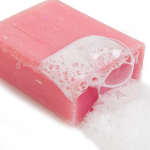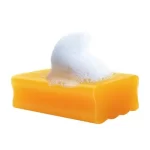Antibacterial soap VS ordinary soap, how to choose?

Consumers want more protection from antibacterial products, but researchers found no significant difference between antibacterial soaps and regular soaps.
In everyday life, many people are accustomed to choosing antibacterial soaps, believing that by doing so, they are taking extra steps to protect themselves from germs. But one study found that these antibacterial soaps are actually no better than regular soaps at killing bacteria.
Millions of U.S. consumers are spending close to $1 billion on antibacterial soaps and antibacterial bath products, according to researchers, while British people spent nearly $1 billion on antibacterial soaps and regular soaps last year, according to statistics agency Mintel. A whopping £638 million was spent on other products.
Clearly, consumers want more protection from antibacterial products, but the researchers found no significant difference between antibacterial soaps and regular soaps.
Scientists from South Korea studied the effects of triclosan (dichlorophenoxychlorophenol, the active antibacterial ingredient most commonly used in antibacterial soaps) by testing triclosan against 20 strains How to effectively kill bacteria.
The researchers first added triclosan to the strain and kept the temperature at 22 degrees Celsius (room temperature) and 40 degrees Celsius (warm temperature) to simulate the ambient temperature changes people typically experience when washing their hands. Note that they used a concentration of 0.3% triclosan, which is the highest concentration allowed by law.
Then they found that triclosan did achieve a significant bactericidal effect after nine hours or more, but obviously, this is not the effect that people can have in the period of time they wash their hands, do you wash your hands? Does it take nine hours for a hand?
The researchers then conducted experiments on 16 healthy adult volunteers in order to compare the germicidal efficacy of antibacterial soaps and regular soaps. The experimental results show that under real living conditions, there is not much difference in the bactericidal effect of using ordinary soap and antibacterial soap.
The study’s lead author, Dr. Min-Suk Rhee from Korea University, said misconceptions in advertising and among consumers about the effectiveness of antibacterial soaps needed to be corrected.
He also said he hoped the information provided by the study would be useful to those in government or related industries. The findings have been published in the Journal of Antimicrobial Chemotherapy.
Copyright 2020, Hebei Guansheng Technology Co.Ltd All Rights Reserved
 Hebei Guangsheng Technology Co.Ltd
Hebei Guangsheng Technology Co.Ltd
 Hebei Guangsheng Technology Co.Ltd
Hebei Guangsheng Technology Co.Ltd






